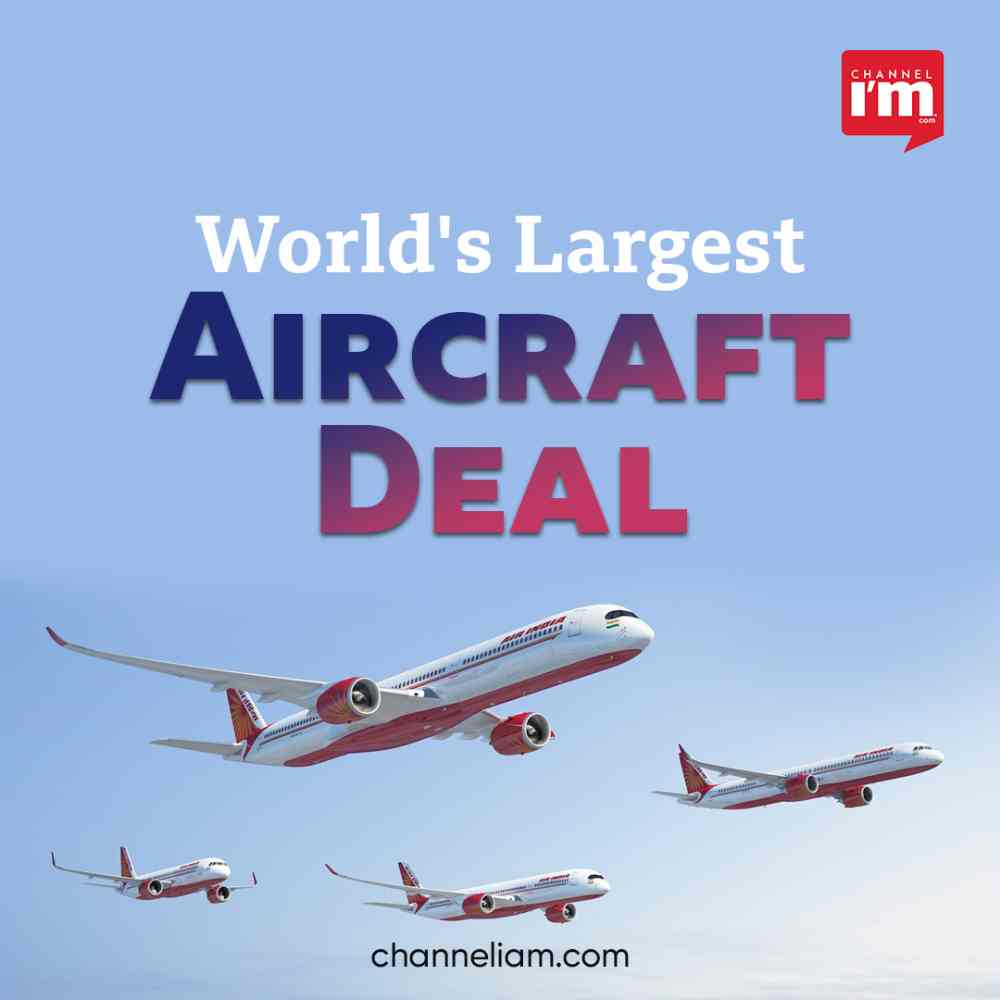One year after joining the Tata group, Air India announced on Tuesday that it has placed an order for 470 planes, of which 250 were with the European aircraft manufacturer Airbus and 220 with the American titan Boeing. This order represents the largest single-tranche aircraft purchase in history.
This has exceeded American Airlines’ 2011 purchase for 460 aircraft.

The aircraft purchase is worth at nearly $70 billion at list price.
Air India has placed an initial order for 40 wide-body A350 aircraft and 210 aircraft from the A320neo family from Airbus, with the option to expand the quantity.
The airline has placed orders with Boeing for 190 narrow-body B737MAX aircraft, 20 wide-body B787 aircraft, 10 wide-body B777X aircraft, and an additional 20 B787 and 50 B737MAX aircraft.
A wide-body aircraft has a larger fuel tank, enabling it to go directly across greater distances such those between India and the United States.
Along with placing an order for aircraft, Air India also reached agreements with three engine suppliers: CFM International for narrow-body A320/B737 aircraft, GE for Boeing 777x/787 aircraft, and Rolls-Royce for A350 aircraft.
In the second half of 2023, 25 Boeing 737s and six Airbus A350-900s will be the first aircraft to arrive.
The last time Air India placed an order was in 2006, when it reserved 111 aircraft, including 68 from Boeing and 43 from Airbus.
Emmanuel Macron and Prime Minister Narendra Modi spoke via video call on Tuesday about the Airbus-Air India agreement. He referred to it as a “landmark contract,” highlighting more than simply the close ties between France and India.
The order from Air India follows months of protracted talks between the airline, aircraft builders, and original equipment manufacturers of engines. This agreement has been hailed as evidence of increased trust and cooperation between India, France, and the US.
N Chandrasekaran, chairman of Tata Sons, who was present on the aforementioned video chat, stated that Air India was going through a “major transformation” and needed a modern, effective fleet to support it.
The “most significant occasion” for Air India, Indian aviation, and the Indian manufacturing industry, according to Chandrasekaran.
